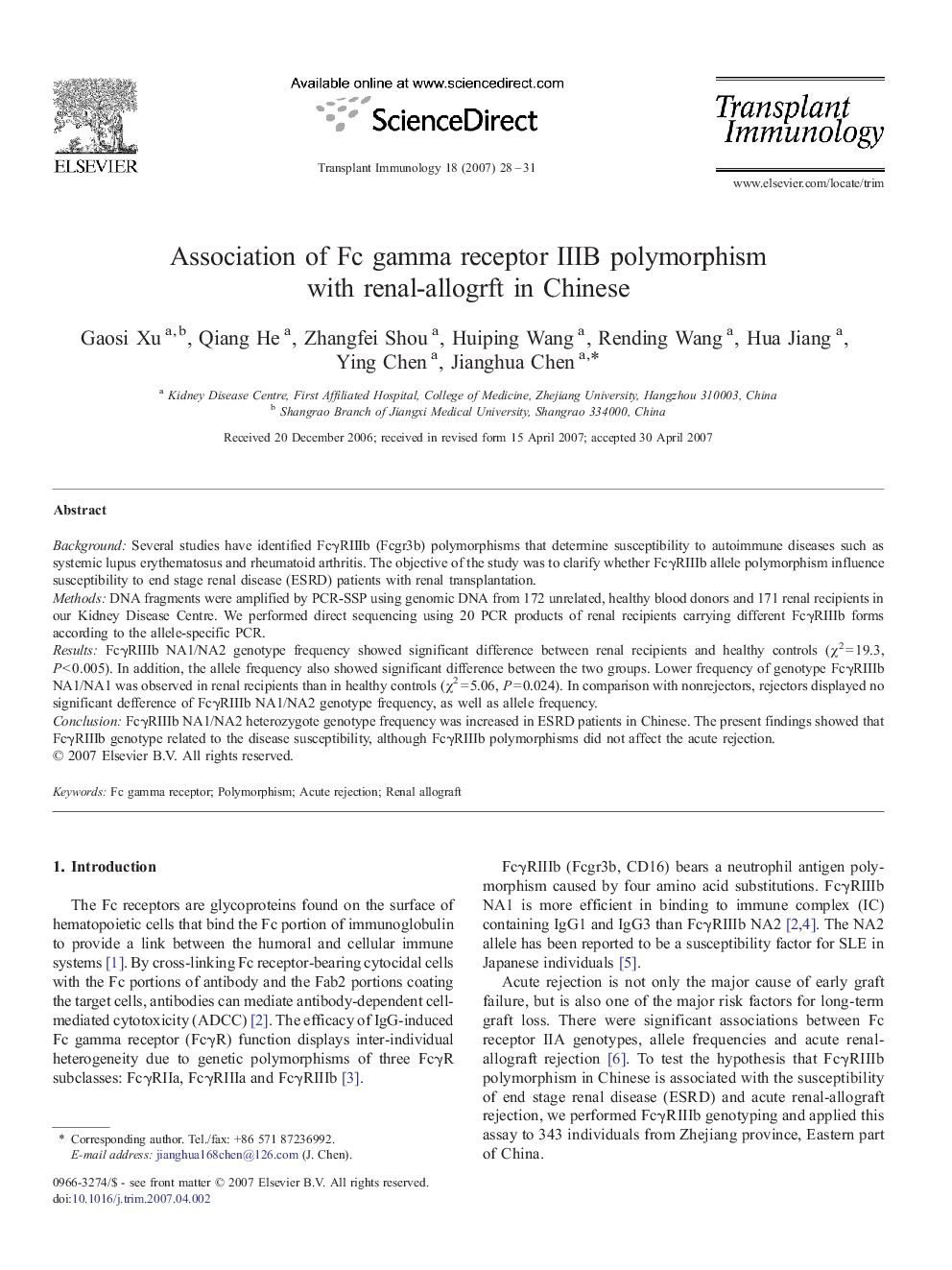| Article ID | Journal | Published Year | Pages | File Type |
|---|---|---|---|---|
| 3392687 | Transplant Immunology | 2007 | 4 Pages |
BackgroundSeveral studies have identified FcγRIIIb (Fcgr3b) polymorphisms that determine susceptibility to autoimmune diseases such as systemic lupus erythematosus and rheumatoid arthritis. The objective of the study was to clarify whether FcγRIIIb allele polymorphism influence susceptibility to end stage renal disease (ESRD) patients with renal transplantation.MethodsDNA fragments were amplified by PCR-SSP using genomic DNA from 172 unrelated, healthy blood donors and 171 renal recipients in our Kidney Disease Centre. We performed direct sequencing using 20 PCR products of renal recipients carrying different FcγRIIIb forms according to the allele-specific PCR.ResultsFcγRIIIb NA1/NA2 genotype frequency showed significant difference between renal recipients and healthy controls (χ2 = 19.3, P < 0.005). In addition, the allele frequency also showed significant difference between the two groups. Lower frequency of genotype FcγRIIIb NA1/NA1 was observed in renal recipients than in healthy controls (χ2 = 5.06, P = 0.024). In comparison with nonrejectors, rejectors displayed no significant defference of FcγRIIIb NA1/NA2 genotype frequency, as well as allele frequency.ConclusionFcγRIIIb NA1/NA2 heterozygote genotype frequency was increased in ESRD patients in Chinese. The present findings showed that FcγRIIIb genotype related to the disease susceptibility, although FcγRIIIb polymorphisms did not affect the acute rejection.
